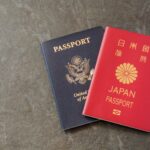People over 300 pounds banned from Japan -Fact check

People over 300 pounds banned from Japan -fact check
Japan banns fat people over 300 lbs
Is Obesity Illegal in Japan?
Are people over 300 pounds banned from Japan? In the realm of viral online claims, a myriad of misunderstandings and falsehoods tend to circulate. One such misconception that has gained ground in recent years is the idea that Japan has made obesity illegal, and furthermore, that people weighing over 300 pounds are banned from the country. It’s essential to clarify that this information is not based on fact. There exists no such legislation as “weight law” in Japan that imposes limitations on people’s weight or declares being overweight as illegal. Therefore, people over 300 pounds are not banned from Japan.
Delving into the “Metabo Law”: A Preventive Measure, Not a Ban
This widespread confusion appears to have its roots in a government initiative introduced in Japan in 2008, known as the “Metabo Law.” This law, however, does not target obesity in the way these rumors of “Japan 300 lbs” suggest. The Metabo Law is primarily aimed at combating metabolic syndrome—a health condition characterized by obesity, high blood pressure, elevated blood sugar, and high cholesterol levels.
Under the Metabo Law, companies with a workforce of 50 or more employees are mandated to measure the waist circumference of their workers. If employees are found to be overweight or obese, the company is required to provide health guidance to them. However, this law doesn’t ban or penalize individuals for being overweight or obese. Instead, it simply pushes employers to support their employees in adopting healthier lifestyles if they are at risk of metabolic syndrome.
The Dangers of Misinformation and its Implications
Yet, despite the Metabo Law’s true intentions, the misinterpretation of its aims has led to a significant misinformation problem. The erroneous belief that obesity is illegal in Japan or that individuals over 300 pounds are banned can have dire consequences. It can foster discrimination against those who are overweight and discourage people struggling with their weight from seeking necessary help.
If you have concerns about your weight, it is always wise to consult a healthcare professional. They can assist you in developing a suitable and healthy weight loss plan, tailored to your unique needs.
Japan and Obesity: Shedding Light on the Facts
In order to fully understand Japan’s stance on obesity, let’s delve into some significant facts:
- Japan has seen an increasing prevalence of obesity in recent years. As per the estimates by the World Health Organization in 2018, about 29% of adults in Japan were considered obese. This signifies a growing health concern that Japan needs to address.
- A multitude of factors contribute to the rise of obesity in Japan. This includes a diet rich in processed foods and a significant decrease in physical activity among the populace.
- In response to this growing problem, the Japanese government has taken numerous steps to tackle obesity. Besides implementing the Metabo Law, the government has launched several public awareness campaigns to stress the importance of maintaining a balanced diet and regular exercise.
Sumo Wrestlers weigh much over 300 lbs
Another clear indicator that debunks the myth of a 300-pound weight limit in Japan is the traditional sport of Sumo wrestling. Sumo wrestlers, or rikishi, are a celebrated and important part of Japanese culture. These athletes, often revered for their strength and agility, typically weigh far more than 300 pounds. Sumo wrestlers’ weight is a strategic advantage in their sport; it’s not uncommon for a professional rikishi to weigh between 330 and 660 pounds.
If a ban or law were in place prohibiting individuals over 300 pounds, it would pose significant challenges to these athletes, potentially undermining a cultural tradition that dates back centuries. Such a weird law would be deeply inconsistent with the high esteem in which these athletes are held and the importance of Sumo wrestling in Japanese culture. This further illustrates that the claim of a weight ban in Japan is baseless, highlighting the critical need for accuracy in information sharing.
Percentage of people weighing over 300 lbs in Japan
There is no statistics on the percentage of people weighing over 300 pounds in Japan. The most recent data is from 2018, which shows that the percentage of Japanese adults who are obese (BMI of 30 or higher) is 3.6%. This is much lower than the percentage of obese adults in the United States, which is 36.2%.
The percentage of people weighing over 100 kilograms (220 pounds) in Japan is less than 1%. According to the 2018 National Health and Nutrition Survey, only 0.8% of Japanese adults are obese, with a BMI of 30 or higher. This is a significant decrease from the 2.5% of Japanese adults who were obese in 1997.
The percentage of people weighing over 100 kilograms (220 pounds) in the United States is much higher than in Japan. According to the 2018 National Health and Nutrition Examination Survey, 42.4% of US adults are obese, with a BMI of 30 or higher. This is a significant increase from the 30.5% of US adults who were obese in 1997.
There are a number of factors that may contribute to Japan’s low obesity rate. One factor is the Japanese diet, which is typically low in calories and fat. Another factor is the Japanese lifestyle, which is characterized by a high level of physical activity.
However, it is important to note that obesity rates in Japan are increasing. In 1997, the percentage of Japanese adults weighing over 220 kilograms was 0.24%. This means that the percentage of obese adults in Japan has increased by 33% in the past 20 years.

In Conclusion: Dispelling the Falsehood of “People Over 300 lbs Banned from Japan”
Let’s put the misconception to rest: people who weigh over 300 pounds are not banned from entering or living in Japan. While obesity is indeed a serious health concern globally and in Japan, it is by no means considered illegal in the country. If you are battling concerns related to your weight, it is always advisable to consult with a healthcare professional. They can guide you to a healthier lifestyle, offering advice on diet, exercise, and other methods suited to your personal circumstances. So, let us continue to debunk false claims and strive for a healthier, more inclusive world.












